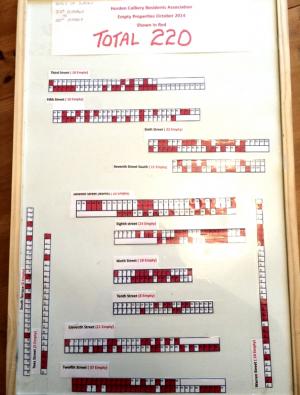



There have been a fair few stories over the last two or three weeks about significant numbers of empty homes in Durham mining villages near Easington which demonstrate that the issues associated with "low demand" - and the search for solutions - are still very much alive.
In the news stories it is Horden in particular which has been singled out, with a claimed 130 empty homes owned by Accent housing association now slated for disposal and reportedly another 130 to follow.
Factoids
Most of the key elements in the story seem to be discussed in a Channel 4 News clip and a story the following day and could be summarised as follows:
- the "broken window" effect means that the level of vacancy is a major deterrent to people moving in and is thus self-perpetuating
- many of the empties (most?) are owned by Accent housing association, which is planning to dispose of them in the open market
- Accent says that 67% of its two-bedroom homes were let to single people, mostly unemployed, and the bedroom tax was "the straw that broke the camel's back"
- nevertheless when they converted a two-bedroom home into a one-bedroom it apparently still could not be let
- there was a significant decline in social conditions over an indeterminate number of years but that did not follow directly on the closure of the colliery
- Accent failed to sell the homes for £1 each to Durham County Council, which claimed the homes needed too much work
- there are claims that Accent failed to keep the homes in good repair
- it is claimed by some that two-bedroomed Victorian terraced houses are so little in demand that they should be considered obsolete
- there are 11,000 households on the waiting list
- homesteading is a popular option amongst those seeking solutions.
